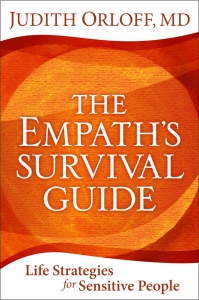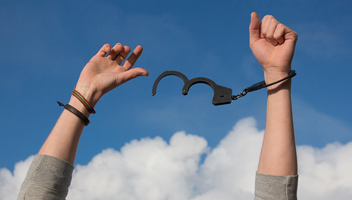Why are empaths so susceptible to alcohol, drug, sex, food, gambling, shopping, or other addictions?
Empaths can become overwhelmed and overstimulated due to their extreme sensitivity. When they “feel too much,” including their own or another’s pain, some empaths self-medicate. If they don’t know how to manage this sensory overload, they numb themselves to shut off their thoughts and feelings to diminish empathy, though not everyone is aware of this motivation.
You pay a high price for coping with your sensitivities through addictions. They wear down your body, mind, and spirit creating illness, depression, and more anxiety as you try to manage an over-stimulating world. At best, addictions only provide short term relief from sensory overload, but in the long term they stop working and will worsen your feeling of being overwhelmed.
Self–Evaluation and Getting Support
Though not all alcoholics or addicts absorb other people’s energy, I’ve observed that a large portion do. Unfortunately, many empaths remain undiagnosed and don’t realize how overstimulation and high sensitivity fuel their addictive behaviors. It’s therefore crucial to understand whether you’re coping with your sensitivities by engaging in addictions. How do you know? Ask yourself the following questions from my book The Empath’s Survival Guide:
- Have I ever thought, “Life would be so much better if I didn’t drink or overeat?”
- Have I ever tried to stop overeating or using substances for a month but could only last a few days, despite my best intentions?
- Are you highly sensitive to the effect food has on your body?
- Am I self-medicating to ease social anxiety or the stress I take on from the world?
If you suspect you are using alcohol, drugs, overeating, or addictive behaviors to manage the sensory overload of being an empath, take some time to reflect on how you cope by evaluating the following statements.
Turn to Substances or Other Addictions When:
- I’m overwhelmed by emotions (mine or another’s)
- I’m in emotional pain and feel frustrated, anxious, or depressed
- My feelings are hurt
- I feel uncomfortable in my own skin
- I can’t sleep
- I feel emotionally unsafe in a situation
- I feel criticized, blamed, or rejected
- I feel shy, anxious, or don’t fit in socially
- I’m isolating at home and I need confidence to go out in public
- I’m tired and need an energy boost
- I feel drained by energy vampires
- I want to escape and shut out the world
Here’s how to interpret this self-assessment:
- Answering yes to even one statement indicates that you sometimes turn to an addiction to cope with your sensitivities.
- Answering 2-5 yeses indicates you are moderately relying on an addiction to self-medicate feelings of sensory overload.
- Answering 6 or more yeses indicates you are largely coping with empathy by engaging in addictive behavior.
 Alternatives to Self-Medicating: Strategies and Solutions
Alternatives to Self-Medicating: Strategies and Solutions
Self-awareness is liberating. No shame. No blame. By being aware of your addictive tendencies, you’re gaining a larger appreciation of how you cope with your empathy. Then you can more productively deal with it. Here are some action steps from my book The Empath’s Survival Guide to help manage sensory overload.
First, it’s necessary to identify your addiction. Honestly assess: How much do I drink or take other substances weekly? How often do I overeat to cope with feeling overwhelmed? Do I turn to other addictions (such as sex, love, gambling, shopping, video games, the internet, or excessive work) to lower my anxiety level or shut off my sensitivities? Be compassionate with yourself. See if you find a pattern of self-medicating your feelings. Self-medicating even once a week or once a month indicates that you may have an issue with addictions.
Second, it’s crucial to realize that nothing on the outside–no substance, person, job, or amount of money–can make you feel comfortable with yourself and your sensitivities. Happiness is an inside job. You must learn to know, love, and accept yourself, a life-long process of discovery. The more you run from your sensitivities, the more uncomfortable you will get. As the Buddha said, “There is no external refuge.”
Third, for an ongoing plan to address your addiction, you might want to consider entering psychotherapy and/or attending Twelve-Step meetings for support. It’s important to find healing modalities to inspire you in having a healthy relationship with yourself and others. Then, as an empath, you won’t be at the mercy of the painful feeling of sensory overload and you will be able to center yourself to find a liberating sense of balance in your life.
Adapted from Dr. Judith Orloff’s ”The Empath’s Survival Guide: Life Strategies for Sensitive People,” a guidebook for empaths and all caring people who want to keep their hearts open in an often-insensitive world.




I found out I am an empath 2 years ago thanks to my Lyme doctor. I will be 70 in 2 weeks. I spent over a million dollars on drugs and alcohol just so I could numb myself from the pain I felt, even if only for a few hours. The voices, seeing people others did not ( when I would say Mom, there’s a monster in my room, there really was ), getting messages with missing time, very real dreams about past lives, left me unable to cope with the real physical pain from lyme, bartonella, and babesia. Only know, with therapy, am I starting to understand the total mess my life is.
I’m in awe at the honesty here. I’m seeing that the amount of weed I smoke isn’t good. These past 2 years almost have been brutal with loss of work (I teach drums to at-risk kids and I’m also a caregiver) loss of friends, abandonment ( I got left in the middle of a lake!), betryal,sexual terrorism, verbal abuse and a dive in my self esteem. I know I have issues with substances. I know too the pain is so intense at times it feels like it’s going to kill me. That may sound crazy. The “there’s something wrong with me” lie can be very persuasive. Thank you Dr. Orloff for your wisdom and your service to empaths everywhere. You are the real deal!
Thank you dr. Judith Orloff reminds me on details to be more aware as empath.
I had a co-worker today tell me that I’m an empath. I knew I was always different that I know people’s vibes and just different from most and it took me a long time to love me for me but I’m still struggling with alcoholism and I’ve had my share of drug addiction. As well just got out of a 8 months rehab that was difficult because of adjusting to living by rules and 120 women. I quit the pills but alcohol is still my crutch and I don’t want it anymore. I know there is so much more that God wants and needs me to do. He gave me this gift for a purpose and alcohol is blocking me from my full potential. Perhaps now that I know what I am maybe now this will be my motivation. I love being an empath. I have purpose and it’s a gift to be able to connect with people on a deeper level
reading your comment was like reading my own.. currently struggling with these exact things now. and its so hard to express and talk about everything because i feel judged or crazy when trying to before😭😭
I’m writing from Switzerland. I actually read what you wrote. I don’t have problems with alcohol but I’m a Christian as well. I didn’t know why I was like that. Now I understand better. I had a lot of success in my life. At the same time I had a lot of defeat. Reading your testimony is a very nice head for me. Thank you. God is able. I believe he will open our eyes to understand and how to function with that sensibility.
I find that I seek refuge in social media majority of the time. Also with food. I love to eat. Food affects my mood in so many ways.
Right now I’m 65 years old, retired and working part-time in retail, at days’ end I come home totally drained. Prior to this, I spent over 30 years in the medical profession, here I was able to use my gift to help others, in fact, saved a couple of lives along the way, but this too at a cost, however, have no regrets, not a one! Have to wait until November 2019 my son will be taking the last board exam and then will have his doctorate! Don’t want to rock the boat as it were, but I need time for quiet, do enjoy a glass of wine, but that’s about it. However, I found that many equate empathy with sympathy, so I have to choose my words carefully. If I were to say that I can feel what day it is, especially a Sat or Sun, vs a Monday morning, I can actually pick up on it, someone may think I’ve lost it, LOL!! Wishing all a great day!!
I have found 12 step meetings will do little good. It can sometimes be unbearably painful and anxiety creating to sit in those rooms. Yes there are times I have been uplifted but its few.
I’m definitely an empath. I’ve been struggling to overcome hoarding issues. Most treatments only address the external symptoms, but I’m convinced the root cause lies deep down inside me.
Wondering if being an empath could be linked to hoarding behavior? Like, that’s my way of numbing myself??
That’s exactly what it does like any addiction. It’s a distraction for you to temperarily ease your pain.
This is so helpful to me in deepening my understanding of myself as well as friends and family.
It’s clear, direct and put in language that specifically targets addictive and empathic tendencies.
Thank you so much, Judith!
This is almost telling my story. I am a Mental Health Counselor, and I feel I am really good at this. I beat addiction in the 90’s when I had migraines and prescribed opiates.
Last year I was working in a really intense service with adolescents and their families. I worked 24/7. My supervisor didn’t rotate being on call so we were on call for our own clients (6-8). Anyway, got really sick and couldn’t get better. Finally lost my voice. I left because I had no energy and couldn’t get better.!I started for the first time getting anxiety. Then use alcohol to relax.
I had interviews when I was ready to go back and would get really nervous. I used to be so sure of myself. Im much better and practice positivity.
Wanted to share and hope to help someone. We have to have a balance. We have to regenerate. Unfortunately it had a lot to do with my supervisor. Just found a job and had a good interview. This place makes sure you have a balance!